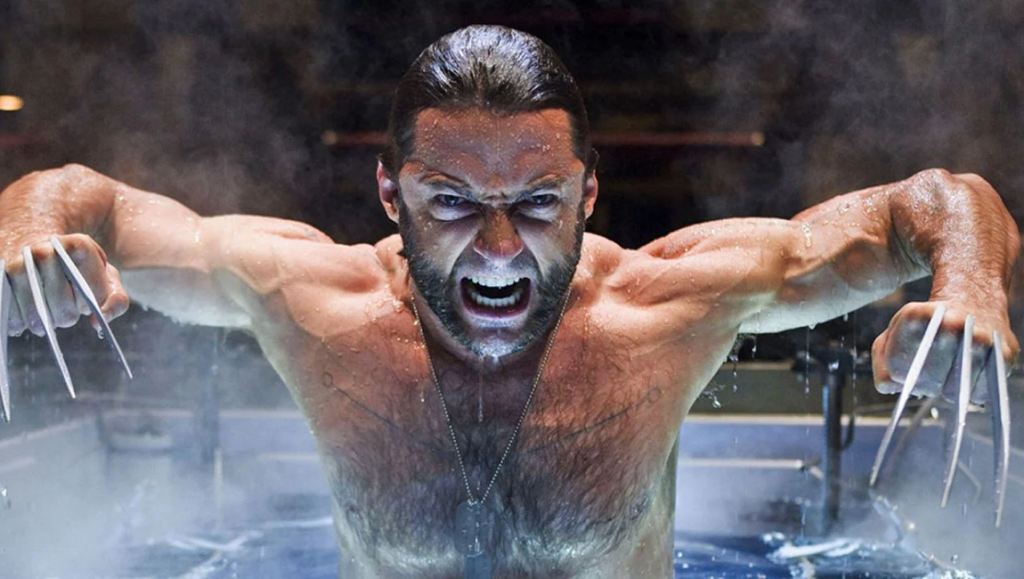The opening salvo in 2009’s summer movie season, and in the battle for our expendable income, X-Men Origins: Wolverine is both straightforward and efficient. The blockbuster relies on technological superiority as an all-out assault on our senses, hypnotizing us with an orgasmic array of carnage, sex, and spectacle. Our minds struggle to process the avalanche of sensory data, leaving us few reserves for our intellectual and emotional counter-assaults. The film begins with a short, confusing and overly melodramatic prelude, in which the young child Logan (Hugh Jackman, as an adult) — Wolverine’s real name for the uninitiated — impales his friend’s father (who’s actually his real father) in a fit of animal rage after realizing his real father (who’s actually his fake father) died at his friend’s father’s hands. Confused? Don’t worry. All that really matters is the knowledge that Logan’s friend, Victor Creed (Liev Schreiber) — better known in the X-Men Universe as Sabretooth, Wolverine’s arch-nemesis — is actually Logan’s brother, thus paving the way for the familiar dialectic between sibling bonds and moral imperatives.
Immediately after this prelude, we witness the film’s greatest cinematic achievement: the opening credits. No, I’m not joking; in the space of these credits, we watch the two brothers transform physically, emotionally, and psychologically as they fight their way through every major American war, from the Civil War all the way to Vietnam. As each conflict grows more destructive, so do Victor’s actions, culminating in an attempted rape scene in a Vietnamese village, with Logan torn between saving Victor from himself or protecting his brother from the criminal consequences of his actions. Few films have so efficiently charted a character’s moral degradation, or so effectively established a central narrative dynamic.
Unfortunately, the film that follows fails to capitalize on this achievement; it proceeds more like a desperate race to the finish, and one that (perhaps intentionally) leaves us few chances for reflection. Characters rapidly hit the screen, slicing their way through the film and exiting stage right just in time for the next character to make their raucous entrance. We bounce back and forth between sets, locations. At the end, we’re sweaty, out of breath, and a little light-headed (fittingly, not unlike the film’s protagonist). Even if we enjoyed the experience, we may not entirely remember it. Though Wolverine can’t measure up to some of the more admirable recent comic book adaptations such as Spider-Man, Iron Man, or Batman Begins, it does mercifully avoid the arrogant pretensions of one of its more recent co-conspirators, Watchmen. And if its tragic and gritty tone may occasionally falter, we can at least be thankful that the film never for a second pretends to be anything more than it is. Had it foolishly attempted to elevate itself from the ranks of frivolous diversion, we would have undoubtedly grown painfully aware of the lack of depth, narrative coherence, and witty repartee that a higher-caliber comic book film demands. We can endlessly debate the merits of escapist cinema, but there’s no debating the inherent flaws of mindless entertainment that masquerades as serious cinema.


Comments are closed.